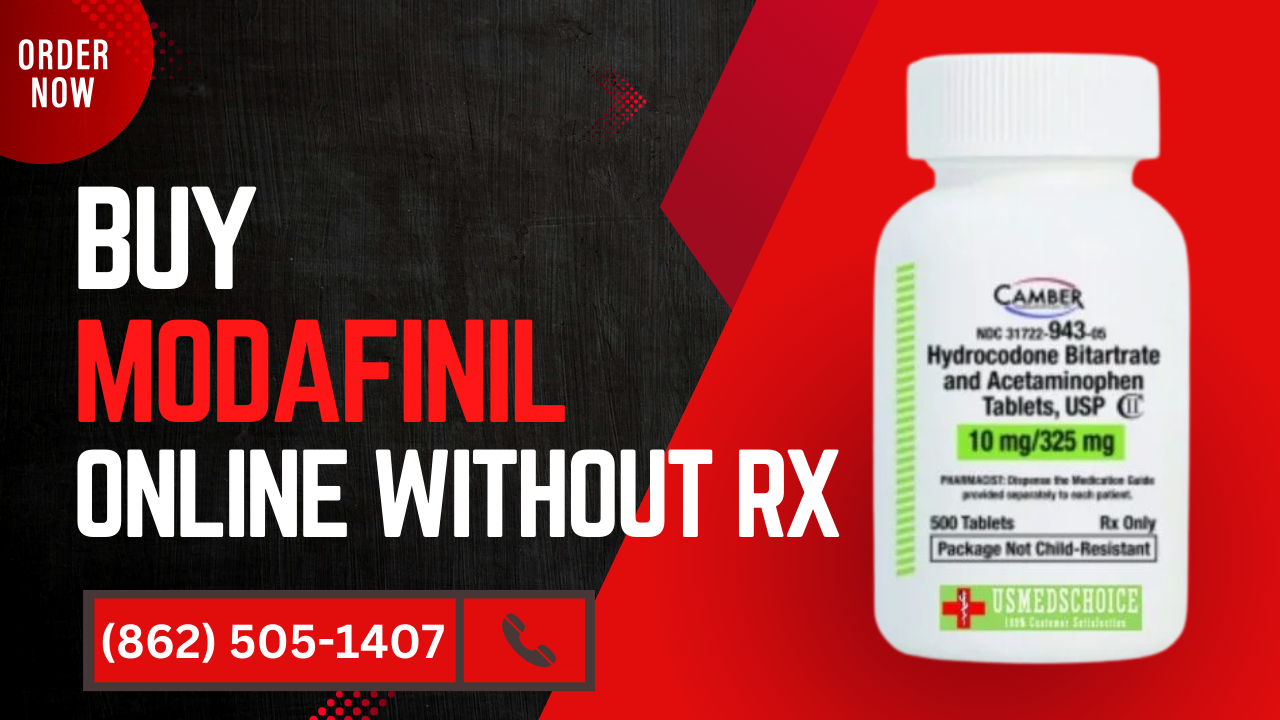Buy hydrocodone online without Rx Refill
| Medication Name: | hydrocodone |
| Dosage: | 10/325mg |
| Price: | from $2.54 per pill |
| Where to Buy | Start Now |
Hydrocodone 10/325mg is a prescription medication that combines two active ingredients: hydrocodone and acetaminophen. Hydrocodone is a potent opioid analgesic, which means it is effective in managing moderate to severe pain. It works by binding to specific receptors in the brain and spinal cord, influencing the perception of pain and emotional response to discomfort. On the other hand, acetaminophen is a widely used over-the-counter pain reliever and fever reducer that complements the effects of hydrocodone, enhancing its overall efficacy for pain relief.
This combination medication is typically prescribed for the treatment of acute pain resulting from injuries, surgeries, or certain medical conditions. It is often used when non-opioid pain relievers are insufficient. Conditions like osteoarthritis, back pain, or post-operative recovery are commonly associated with prescriptions for hydrocodone 10/325mg. The dosage of 10/325mg indicates that each tablet contains 10 milligrams of hydrocodone and 325 milligrams of acetaminophen, making it crucial for patients to adhere to prescribed guidelines to minimize risks.
The place of hydrocodone 10/325mg in the spectrum of pain relief medications is significant. While it provides effective pain management for those in need, it carries inherent risks, particularly related to the potential for addiction, dependency, and side effects associated with opioid use. Due to these risks, healthcare providers carefully evaluate a patient’s medical history and the severity of their pain before prescribing this medication. Therefore, it is essential for individuals to engage in open discussions with their healthcare professionals regarding the benefits and risks of using hydrocodone 10/325mg as part of their pain management strategy.
Hydrocodone 10/325mg is a prescription medication that combines hydrocodone, an opioid analgesic, with acetaminophen, a non-opioid pain reliever. This combination is primarily indicated for the management of moderate to severe pain conditions. Healthcare providers commonly prescribe it in various scenarios, particularly post-surgical recovery, cancer-related pain, or chronic pain disorders. The effectiveness of hydrocodone 10/325mg is notable, especially for patients who require comprehensive pain relief that cannot be managed adequately with non-opioid alternatives.
One of the major indications for prescribing hydrocodone is post-operative pain control. Following surgery, patients often experience significant discomfort, and the potent analgesic properties of hydrocodone can help reduce pain levels, enabling faster recovery. Additionally, chronic conditions such as osteoarthritis and fibromyalgia may warrant the use of this medication to manage persistent discomfort that impacts the patient’s quality of life.
In terms of benefits, hydrocodone 10/325mg offers patients the ability to engage more fully with their daily activities and responsibilities without being overwhelmed by pain. This improvement in functionality is crucial, as it can significantly enhance the individual’s overall well-being and mental health. Furthermore, the combination of hydrocodone and acetaminophen provides an additive analgesic effect, producing better pain control than either medication could achieve alone.
However, it is important for healthcare professionals to assess the suitability of hydrocodone 10/325mg on a case-by-case basis. Factors such as the patient’s medical history, the potential for developing dependency, and other existing health conditions play a crucial role in developing personalized treatment plans. Tailoring pain management approaches ensures both efficacy and safety, aligning treatment objectives with the patient’s best interests.
Hydrocodone 10/325mg is a combination medication used primarily to manage moderate to severe pain. While it can be effective for pain relief, it is crucial to consider the potential risks and side effects that may arise from its use. Understanding these risks can help both patients and healthcare providers make informed decisions regarding treatment.
In the short term, common side effects associated with Hydrocodone may include nausea, dizziness, and drowsiness. These effects can vary in intensity and may impact a patient’s ability to perform daily tasks, particularly activities that require full alertness, such as driving. Additionally, some individuals may experience constipation, dry mouth, or itching. It is critical for patients to report any adverse effects to their healthcare provider promptly to manage these symptoms effectively.
Long-term use of Hydrocodone raises significant concerns regarding dependency and addiction. Patients who take this medication for extended periods can develop a physical or psychological reliance on it, leading to misuse or seeking higher doses for the same level of pain relief. The potential for overdose is another severe risk, particularly when Hydrocodone is combined with other substances that depress the central nervous system, such as alcohol or benzodiazepines. Such combinations can drastically increase the likelihood of respiratory depression, a life-threatening condition.
Therefore, it is vital for healthcare providers to closely monitor patients prescribed Hydrocodone 10/325mg. Regular assessments can help identify early signs of misuse or dependency, allowing for timely intervention. Educating patients about the importance of adhering to prescribed dosages and recognizing the potential for adverse effects is essential in mitigating these risks. Overall, the effective management of pain using Hydrocodone should balance the benefits of pain relief with the necessity of safeguarding patient health.
When prescribed Hydrocodone 10/325mg, it is crucial for patients to adhere strictly to dosage guidelines established by their healthcare providers. This medication is a combination of hydrocodone, an opioid analgesic, and acetaminophen, which is utilized primarily for managing moderate to severe pain. Generally, the typical dosing regimen for adults should not exceed the recommended limits to minimize the risk of adverse effects and dependency. Patients must follow their prescribed dosage to avoid complications related to both opioids and acetaminophen.
Following the prescribed regimen is vital for ensuring the efficacy of the treatment while mitigating potential risks. Taking Hydrocodone more frequently or in higher doses than prescribed can lead to tolerance, where higher doses become necessary to achieve the same pain-relief effects, which significantly increases the likelihood of developing an addiction. Additionally, mixing Hydrocodone with other substances, especially those containing alcohol, can elevate the risk of severe side effects.
Certain contraindications need to be considered before commencing treatment with Hydrocodone. Interactions with other medications, such as benzodiazepines or certain antidepressants, pose significant risks, as they can amplify the effects of hydrocodone, leading to heightened sedation or respiratory depression. Patients with medical histories of respiratory conditions, liver disease, or substance misuse should discuss these factors with their healthcare providers before starting the medication. Consulting healthcare professionals not only helps in understanding the depth of these considerations but also ensures the safe use of Hydrocodone.
Regular follow-ups with a healthcare provider are imperative. These appointments enable providers to monitor a patient’s progress, assess pain management adequacy, and make necessary adjustments to the treatment plan. Through continuous dialogue, patients can express any concerns regarding efficacy or side effects, creating a foundation for a safer and more effective pain management strategy.
For patients considering alternatives to Hydrocodone 10/325mg, several options are available across both pharmaceutical and non-pharmaceutical categories. The most common pharmaceutical alternatives include nonsteroidal anti-inflammatory drugs (NSAIDs) such as ibuprofen and naproxen, which can effectively reduce inflammation and alleviate pain without the risks associated with opioid medications. Muscle relaxants may also provide substantial relief for patients experiencing muscle spasms, thereby addressing certain types of pain that may not respond well to NSAIDs alone.
Additionally, other types of opioids can be prescribed for pain management in specific cases. Medications like oxycodone or morphine can provide an effective alternative, especially for patients with severe pain who may not achieve adequate relief with lower-strength medications. However, it is important to weigh the risks, as these alternatives can also present similar issues with dependency and side effects.
Beyond pharmaceutical interventions, non-drug options have gained recognition for their effectiveness in pain management. Physical therapy is a well-established approach that includes tailored exercise regimens designed to improve mobility and strength, ultimately reducing pain through functional improvement. Acupuncture, an ancient practice rooted in Chinese medicine, involves inserting thin needles at specific points on the body to relieve pain and promote healing.
Lifestyle modifications, such as incorporating regular exercise, maintaining a balanced diet, and managing stress through techniques like yoga or mindfulness, can play a crucial role in pain management. These non-pharmaceutical approaches not only help reduce pain but also improve overall well-being. By exploring these alternatives, patients may find effective methods to manage their pain while minimizing the complications associated with opioid use, preserving their quality of life.









